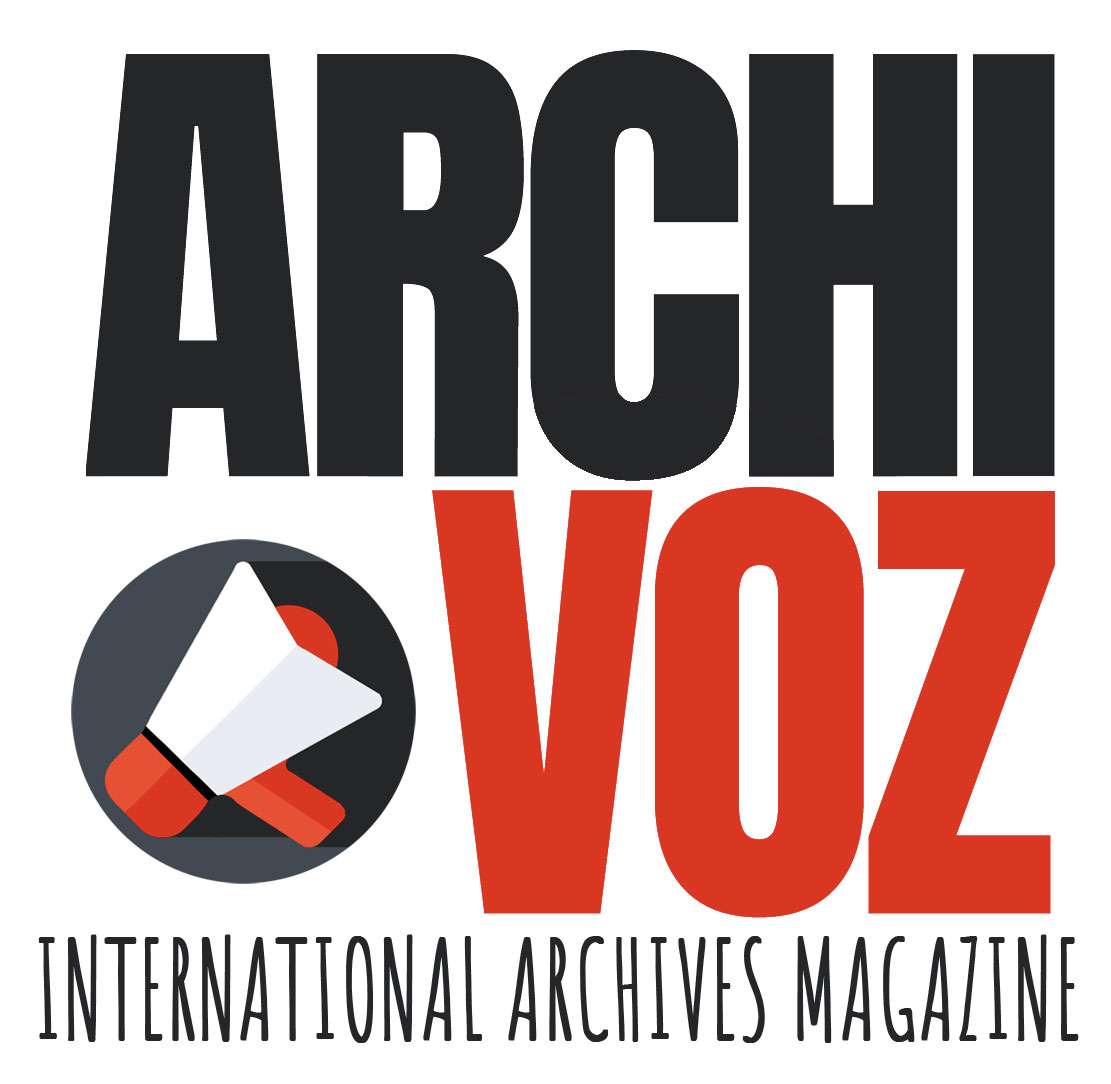Introduction
One of my main professional interests relates to the intersections between practice and theory, and how we can lead transformation to reshape and support structural changes within cultural institutions. I believe archivists and information workers can play a key role in advocating for Aboriginal and Torres Strait Islander rights in cultural heritage collections. This includes, for example:
- Supporting sovereignty over access, use and representations of Aboriginal and Torres Strait Islander stories and information held in archives and libraries.
- Proactively building spaces for deep listening and understanding of our own positionality.
In an historical moment where structural racism and white privilege have been brought to the light across society, and the world is pulsing for change— it is even more crucial to know where we will be standing in our professional lives to ensure our commitment is enduring [1].
Working to centre Aboriginal and Torres Strait Islander voices
Over the last decade, I have been working and collaborating on several projects and initiatives advocating for increased visibility of Aboriginal and Torres Strait Islander voices across the sector; advancing respectful access to historical records held in cultural institutions; and pushing for increased provision of resources and tools for local community archives so that people can care for their local collections and stories on Country.
I have contributed to projects such as the Indigenous Archives Collective; the building of the State Library of NSW Mukurtu site, Gather [2]; the creation of the strategy Indigenous Spaces in Library Places; and the establishment of the NSW Australian Mukurtu Hub.
When I moved from Italy to Gadigal Land (Sydney, NSW, Australia) to study and work in the field of archives, my drive was the advancement of social justice and human rights, and I started to be especially interested in how the archival profession contributes to this area [3]. This interest was sparked thanks to the many Aboriginal, First Nations and Native American scholars, professionals, activists, and community members who have exposed the vital importance of control and transparency over their historical archives to achieve concrete social justice and building of a nation based on the recognition of past harm against Indigenous peoples (Allison Boucher Krebs, Henrietta Fourmile, Jennifer O’Neal, Loriene Roy, Kirsten Thorpe, Lyndon Ormond-Parker, Martin Nakata, Shannon Faulkhead, and many others).
We need to be the change in the sector
Despite this long-standing advocacy across the sector, there are still structural changes that need to happen to be able to develop research agendas which are built upon community needs, aspirations and control—rather than fostering a model which aims to build partnerships to fulfil institutional needs and visions [4]. Events like the destruction of Edward Colston’s statue in Bristol during the BlackLivesMatter protests in June 2020 [5] are powerful examples of how the disruption of national symbols shocks and disturbs. This is because honest conversations on the benefit that colonialism, human trafficking, slavery and structural inequalities have brought to our countries are still failing to happen.
Cultural institutions have an opportunity to be present and visible in these debates right now, becoming arenas for contested histories, spaces for dismantling stereotypes and where informed activism can flourish. In the NSW (Australian) context, some of the questions which still need to be addressed include the communities’ ability to benefit from the co-design of projects and research; the impact of dispersed collections and issues of provenance; the support needed for the management of local community archives and digital keeping places; the role of cultural institutions in overcoming the digital divide (both in terms of access to Internet and digital tools); the increase of Aboriginal employment and professional paths; and the growth of communities of practice of people across the sector who can support Aboriginal leadership and community priorities.
But first, we must listen and acknowledge
Before advocating for change, we must firstly acknowledge the deep harm that past colonial practices have inflicted and try to understand the impact that these histories had, and still have on people [6]. Growing cultural competence is fundamental not only in understanding diverse standpoints and worldviews, but to support direct calls for action, both from an organisational and personal point of view [7].
As an Italian migrant to Australia, I have committed myself to deeper learning, including reflecting on my role in this space, and on how I can continue to support Aboriginal aspirations within the cultural sector [8]. Reflecting on my own positionality and standpoint has been—and is every day—a powerful way of understanding my own bias, which I carry during my work. But it has also been an instructive journey, to recognise how my double perspective of working in the Aboriginal space and being an Italian woman could make a contribution in this space.
As Yorta Yorta woman, public health professional and academic Summer May Finlay reminded us in occasion of the last Reconciliation Week:
“As just three per cent of the Australian population, Aboriginal and Torres Strait Islander people need the other 97 per cent of Australians to do the heavy lifting if we are ever to see true reconciliation. This National Reconciliation Week is a good time to decide where you fit. And if you are tokenistic, or an ally, ask yourself what you can do to become an accomplice in supporting the future of Aboriginal and Torres Strait Islander people […]” [9]
Aboriginal cultural heritage materials remain disconnected and dispersed
Throughout my work, the concept of displaced and misplaced archives has come up constantly among Aboriginal peoples and communities, along with the thick layers of representations, narratives, histories, politics, violence, silences, ownership and responsibilities intertwined within these dispersed stories.
It remains the case that many Aboriginal cultural heritage materials held in Australian and overseas institutions remain disconnected and dispersed from their communities of origins. The difficulties and frustrations that Aboriginal and Torres Strait Islander peoples experience when trying to access this material, has motivated me to reflect on the existing theories around displaced archives (for example, through the work of Anne Gilliland, James Lowry, Michelle Caswell and Sue McKemmish), and on how the current transnational legal debate around physical and digital repatriation of displaced records to marginalised communities needs to seek new paradigms and frameworks to result in effective changes.
I will explore this topic as part of my doctoral studies, which focuses on the power structures embedded in displaced archives, with a particular focus on Italy, and on the opportunities that the digital circulation of knowledge could offer to the conversation around these records.
Conclusions
To be proactive in increasing our own cultural competence, reflecting on our positionality and opening up spaces for deep listening are crucial steps to support Aboriginal and Torres Strait Islander priorities across the cultural sector in the long-term, and advocating for structural changes.
Drawing the nexus between power dynamics embedded in displaced collections and the human rights of communities this information is related to, my PhD aims to contribute deeper understanding to these questions in order to build dialogue in this area, and build spaces of partnerships and collaborations which could benefit both communities and institutions.
References and Notes
[1] Many Aboriginal and Torres Strait Islander peoples and professionals have been standing up all over the world to support the #BlackLivesMatter movement, reminding us that #AboriginalLivesMatter and that structural racism is very present in Australia today.
[2] The Content Management System Mukurtu is an open source community digital access platform designed to meet the needs of Indigenous communities worldwide. More information is available at https://mukurtu.org/.
[3] The Gadigal people of the Eora Nation are the Traditional Owners of the area we now call the Sydney CBD. A great resource to know the areas in which area we stand is the AIATSIS map of Indigenous Australia, available online at https://aiatsis.gov.au/explore/articles/aiatsis-map-indigenous-australia.
[4] Authors and scholars such as Aileen Moreton-Robinson, Linda Tuhiwai Smith, Jo-ann Archibald Q’um Q’um Xiiem, Jason De Santolo, Larissa Behrendt have written about the challenge of Indigenous research to Western paradigms. Sabelo Ndlovu-Gatsheni provides an overview in his article Decolonising research methodology must include undoing its dirty history.
[5] To find out more about the questions raised by the destruction of Edward Colston’s statue read The Guardian , BBC, or The Conversation. For an Australian perspective, read Nathan mudyi Sentence’s Whose History: the role of statues and monuments in Australia and this SBS story.
[6] Taking control of learning and reflecting on history and racism is everyone’s responsibility. Some useful resources are the Anti-Racism Resources for White People in Australia, or the Anti-Racism Resources from Australia and Beyond, among many others. For a perspective on the role of Australian museums read Deaths in custody: What can museums do to effect change? by Dr Sandy O’Sullivan
[7] An example is the great post of Melissa Bennet for Archivoz (@HistorianMel) Decolonising the Archive: Responsibilities for Researchers and Archive Professionals.
[8] Galassi, M. (2019) ‘My Cultural Competence Journey/An Italian perspective of working with Aboriginal and Torres Strait Islander Collections and Services in GLAM’, Indigenous Archives Collective, https://indigenousarchives.net/2019/06/27/my-cultural-competency-journey-an-italian-perspective-of-working-with-aboriginal-and-torres-strait-islander-collections-and-services-in-glam/.
[9] May Finlay, S. (2020) ‘Where do you fit? Tokenistic, ally – or accomplice?’, Croakey independent, in-depth social journalism for health, https://croakey.org/where-do-you-fit-tokenistic-ally-or-accomplice/.
Banner image credit: “Northcote street art – ‘Change’” by Melbourne Streets Avant-garde, used under CC BY / Aboriginal flag colours and black background added to original image.



